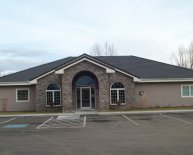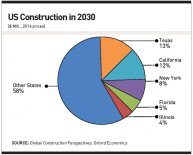
Construction Market Outlook

Topics discussed because of the panel included:
•Design Develop. As competition on the market will continue to increase and project proprietors aim to get more value, many companies are thinking about implementing a design build method as a way to differentiate on their own while increasing revenue. However, this strategy isn't an easy undertaking as a design build method could expose a company to a tremendous quantity of threat and expenditure. “Getting into it before being prepared can be costly and risky, ” stated Samara Barend of AECOM Capital. Just because precisely ready, the financial tension of this business strategy could be a major drawback for businesses. “The costs to pursue projects are exorbitant, ” added Samara. As a result, organizations trying to apply design build must have an in depth comprehension of the professionals and cons from the implementation and procedure of such a method to be able to use the necessary tips to reduce the financial burden and threat publicity inherent in design build.
•Insurance. Expenses for New York local building organizations continue to increase, particularly with regards to insurance. As a result, organizations are exploring many different ways to offset these expenditure increases. For instance, businesses tend to be concentrating more about total safety on work sites and applying guidelines and processes to lessen the sheer number of accidents and keep insurance costs down. Additional attempts about increasing efficiency and economic stability may also help in counteracting restrictions available in the market and lowering a company’s insurance expenditures.
•D/MWBE Requirements and Difficulties. As state demands consistently boost about D/MWBEs, building businesses are experiencing the pressures of continuing to be certified. In fact, numerous executives question if these state granted needs tend to be realistic for the majority of construction organizations in the area. Ed Harms, of Island organizations, agrees and says, “The dynamic is basically in which needs still increase to an unattainable level.” Satisfying these demands is also more difficult given that trouble in identifying qualified D/MWBE organizations in the region can be increasing. Nearly 1 / 2 (43percent) of study participants indicated that state-provided competent D/MWBEs aren't valuable as organizations tend to be neither expert nor have actually abilities to complete projects. With all this, organizations want to adopt a robust due diligence approach being lower their particular general contact with danger. Ed Harms advises, “Kick the tires, look at the recommendations, go to the facility, start to see the gear and meet the people.”

















